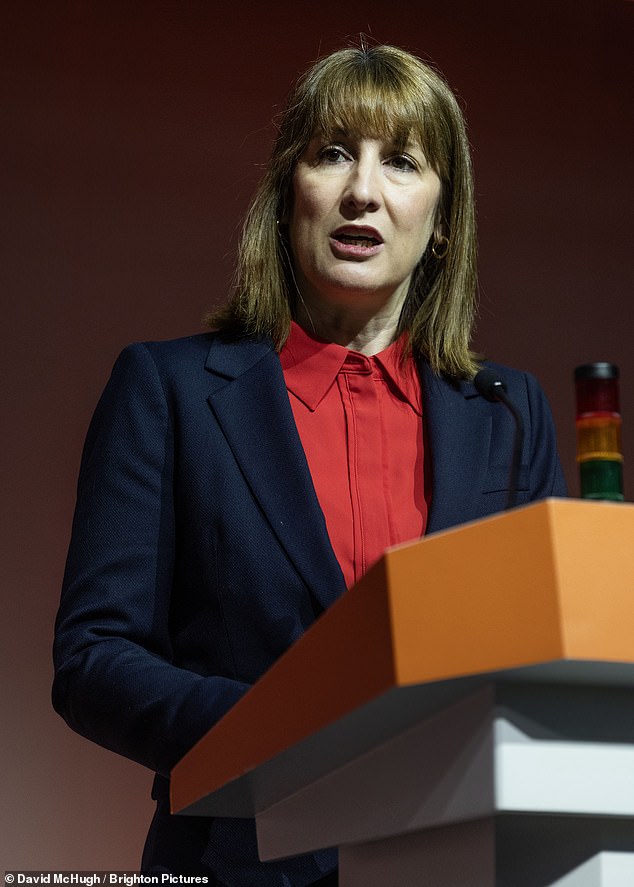Nearly half a century has passed since Margaret Thatcher skewered the incumbent PM James Callaghan at the 1979 election with her famous ‘Labour Isn’t Working’ poster, which showed dole queues stretching across the horizon.
We are not quite there yet. But after years of low unemployment in Britain, Rachel Reeves and Sir Keir Starmer have brought chaos – in just 11 months – to what was one of the strongest labour markets in Europe.
Last October’s Budget and its central and perhaps most hated policy – an increase in employers’ National Insurance to 15 per cent – added no less than £23 billion to bosses’ wage bills. And for all this Government’s promise not to raise taxes on ‘working people’, it’s now clear that this misguided and self-defeating pledge is having a vicious impact on jobs.
Companies are proving reluctant to take on new workers, are deliberately not replacing colleagues who move on and are taking the opportunity to cut costs by making people redundant.
The only silver lining is slowing wage increases, at least in the private sector, should make it possible for the Bank of England to lower interest rates by a further 0.25 per cent this summer to 4 per cent – making mortgages and borrowing cheaper. The public sector is another matter, of course, and has enjoyed lavish raises at the expense of the productive part of the economy – to say nothing of its far more generous gold-plated pensions, paid out of direct taxation.

After years of low unemployment in Britain, Rachel Reeves and Sir Keir Starmer have brought chaos – in just 11 months – to what was one of the strongest labour markets in Europe
But overall the picture is dire.
The National Insurance increase, along with a hugely generous rise in the minimum wage – now one of the highest on the planet – surging fuel costs and rising business rates, have shattered business confidence. Companies are shedding jobs at an alarming rate.
Figures collected by HMRC show that 55,000 jobs were lost in April alone and numbers ‘were notably weaker’ than expected, according to bankers Goldman Sachs. Vacancies are tumbling, too – these stood at 736,000 in the three months to April, down from 760,000 in the previous period, and were at 1.4 million as recently as 2022.
The unemployment rate, which was 3.6 per cent of the workforce prior to the pandemic, has now zipped up to 4.6 per cent.
And the worst part? There’s more to come. Businesses are steeling themselves for socialist firebrand Angela Rayner’s beloved Employment Rights Bill, currently grinding its way through Parliament, which will make hiring new workers even more expensive.
To peals of outrage (and a front-page Daily Mail headline: ‘Deluded’), this week Sir Keir claimed to have ‘fixed’ our public finances, thus making possible his Government’s U-turn on snatching the winter fuel allowance from millions of pensioners. Well, if this is what ‘fixed’ looks like, Sir Keir, I’d hate to see the economy ‘broken’.
Rising unemployment is a menace. It inevitably raises the cost of Britain’s already gargantuan welfare bill – and it simultaneously reduces Government revenues due to lower income tax and National Insurance receipts.
In 1979, unemployment stood at 5.3 per cent – and, despite the Iron Lady’s famous poster, it rose to a staggering 11.9 per cent by 1984 on her watch. We are a long way from those days.
Yet as I have said before, Ms Reeves – with last year’s £40 billion tax-raising Budget, locked Britain into a doom loop of plummeting business confidence, rising unemployment and reduced job choices.
Yesterday’s multi-year public-spending review will splash the cash on investments in nuclear power, science and technology, roads and railways. As helpful as all that may be, it will mean more Government borrowing and debt that will take years to pay off.
Expect unemployment to keep on rising until the Government changes course.












